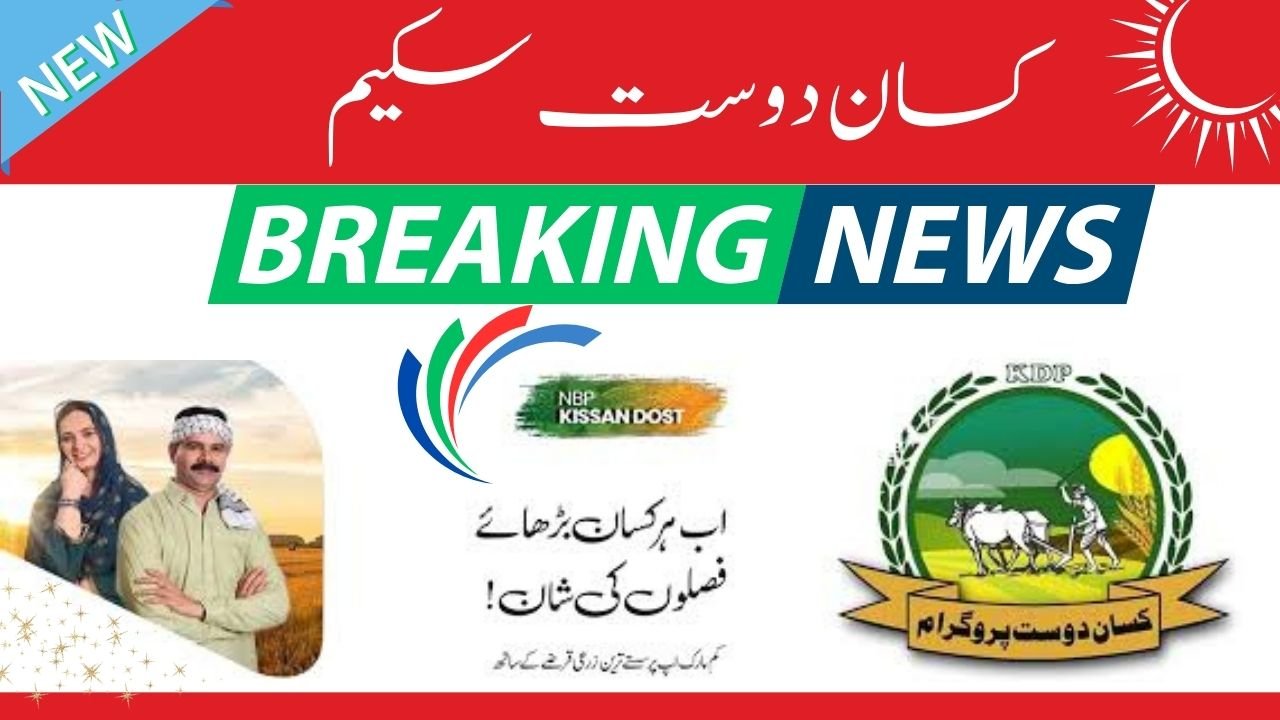Kisan Dost Scheme
The Kisan Dost Scheme is an agricultural initiative introduced by the government to support farmers and enhance agricultural productivity. This scheme aims to provide financial assistance, technical support, and resources to farmers, helping them adopt modern farming techniques and improve their livelihoods.
Objectives of the Kisan Dost Scheme
- Financial Support: The scheme offers financial aid to farmers to purchase seeds, fertilizers, and other necessary agricultural inputs.
- Modern Farming Techniques: Training programs are organized to educate farmers about modern farming methods, sustainable practices, and efficient resource management.
- Resource Availability: Ensuring the availability of high-quality seeds, fertilizers, pesticides, and modern equipment to farmers.
- Insurance and Credit Facilities: Providing crop insurance and easy access to credit facilities to mitigate the risks associated with farming.
- Market Access: Facilitating better market access for farmers to sell their produce at fair prices.
Key Features of the Kisan Dost Scheme
- Subsidies on Agricultural Inputs: Farmers receive subsidies on the purchase of seeds, fertilizers, pesticides, and farming equipment.
- Training and Workshops: Regular training sessions and workshops are conducted to educate farmers about the latest agricultural practices and technologies.
- Soil Health Cards: Distribution of soil health cards to farmers, helping them understand the nutrient status of their soil and adopt appropriate farming practices.
- Crop Insurance: Provision of crop insurance to protect farmers from crop failure due to natural calamities, pests, or diseases.
- Interest-Free Loans: Offering interest-free loans to farmers for purchasing agricultural inputs and equipment.
- Market Linkages: Establishing direct linkages between farmers and markets to ensure fair prices for their produce.
- Water Management: Initiatives for efficient water management, including the promotion of drip irrigation and rainwater harvesting techniques.
Implementation Strategy
- Awareness Campaigns: Conducting awareness campaigns to inform farmers about the benefits and procedures of the scheme.
- Registration Process: A simple and transparent registration process for farmers to enroll in the scheme.
- Collaboration with Agricultural Institutes: Partnering with agricultural universities and research institutes to provide technical support and training to farmers.
- Monitoring and Evaluation: Regular monitoring and evaluation of the scheme’s implementation to ensure its effectiveness and make necessary adjustments.

Benefits of the Kisan Dost Scheme
- Increased Agricultural Productivity: By providing financial assistance and modern resources, the scheme helps increase agricultural productivity.
- Enhanced Income: With better market access and fair prices for their produce, farmers can significantly enhance their income.
- Risk Mitigation: Crop insurance and access to credit facilities help farmers mitigate the risks associated with farming.
- Sustainable Farming: Training on sustainable farming practices ensures long-term soil health and environmental conservation.
- Empowerment of Farmers: The scheme empowers farmers by providing them with the knowledge, resources, and financial support needed to improve their livelihoods.
Challenges and Solutions
- Awareness: Many farmers may not be aware of the scheme. Awareness campaigns and local agricultural officers can help bridge this gap.
- Accessibility: Ensuring that all farmers, especially those in remote areas, have access to the benefits of the scheme through local centers and mobile units.
- Implementation: Effective monitoring and evaluation to ensure that the scheme is implemented as planned and reaches the intended beneficiaries.
Frequently Asked Questions (FAQs)
1. What is the Kisan Dost Scheme?
The Kisan Dost Scheme is an initiative by the government to provide financial assistance, technical support, and resources to farmers to improve agricultural productivity and enhance their livelihoods.
2. Who is eligible for the Kisan Dost Scheme?
All farmers, including small and marginal farmers, are eligible to benefit from the Kisan Dost Scheme.
3. How can I register for the Kisan Dost Scheme?
Farmers can register for the scheme through the official website or at local agricultural offices. They may need to provide necessary documents such as land ownership proof and identification.
4. What kind of financial assistance is provided under the scheme?
The scheme provides subsidies on agricultural inputs like seeds, fertilizers, and equipment, as well as interest-free loans and crop insurance.
5. Are there any training programs for farmers under the scheme?
Yes, the scheme includes regular training sessions and workshops to educate farmers about modern farming techniques, sustainable practices, and efficient resource management.
6. How does the crop insurance under the Kisan Dost Scheme work?
Crop insurance covers losses due to natural calamities, pests, or diseases. Farmers can claim compensation in case of crop failure.
7. What are the benefits of the soil health card provided under the scheme?
The soil health card provides information about the nutrient status of the soil, helping farmers adopt appropriate farming practices to improve soil health and crop yield.
8. How does the scheme ensure better market access for farmers?
The scheme establishes direct linkages between farmers and markets, helping farmers get fair prices for their produce and reducing the involvement of middlemen.
9. Are there any water management initiatives under the Kisan Dost Scheme?
Yes, the scheme promotes efficient water management techniques such as drip irrigation and rainwater harvesting to ensure sustainable water use in agriculture.
10. How is the implementation of the Kisan Dost Scheme monitored?
The scheme includes a robust monitoring and evaluation mechanism to ensure effective implementation and make necessary adjustments based on feedback and performance.
11. Can farmers in remote areas benefit from the Kisan Dost Scheme?
Yes, efforts are made to ensure that farmers in remote areas have access to the benefits of the scheme through local centers and mobile units.
12. What steps are taken to create awareness about the Kisan Dost Scheme?
Awareness campaigns are conducted through various media channels, and local agricultural officers play a crucial role in informing farmers about the scheme.
13. How does the scheme contribute to sustainable farming?
The scheme promotes sustainable farming practices through training and providing resources that ensure long-term soil health and environmental conservation.
14. What measures are taken to address the challenges faced by the Kisan Dost Scheme?
Regular monitoring, effective implementation, and feedback mechanisms are in place to address challenges and ensure the scheme reaches the intended beneficiaries.
